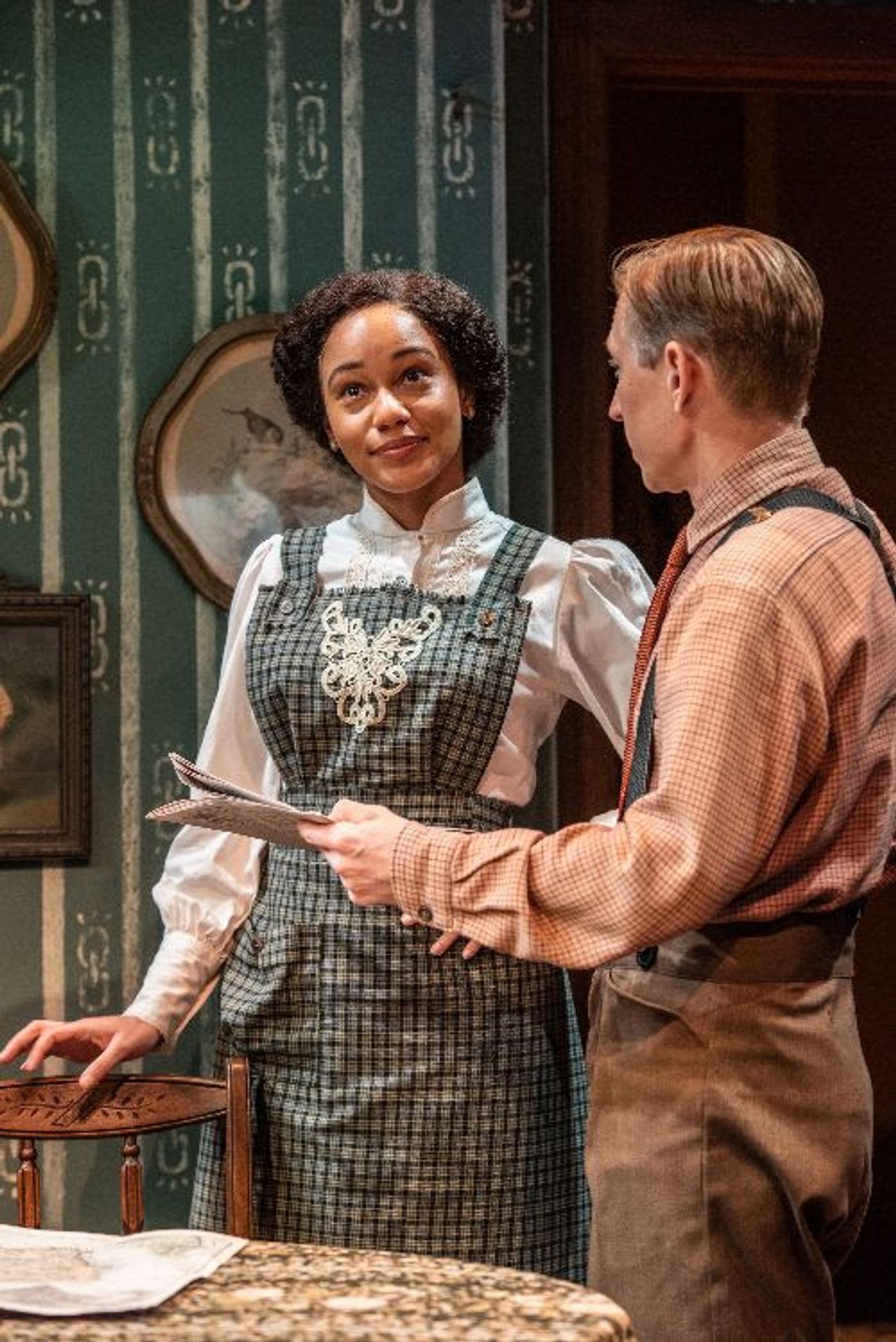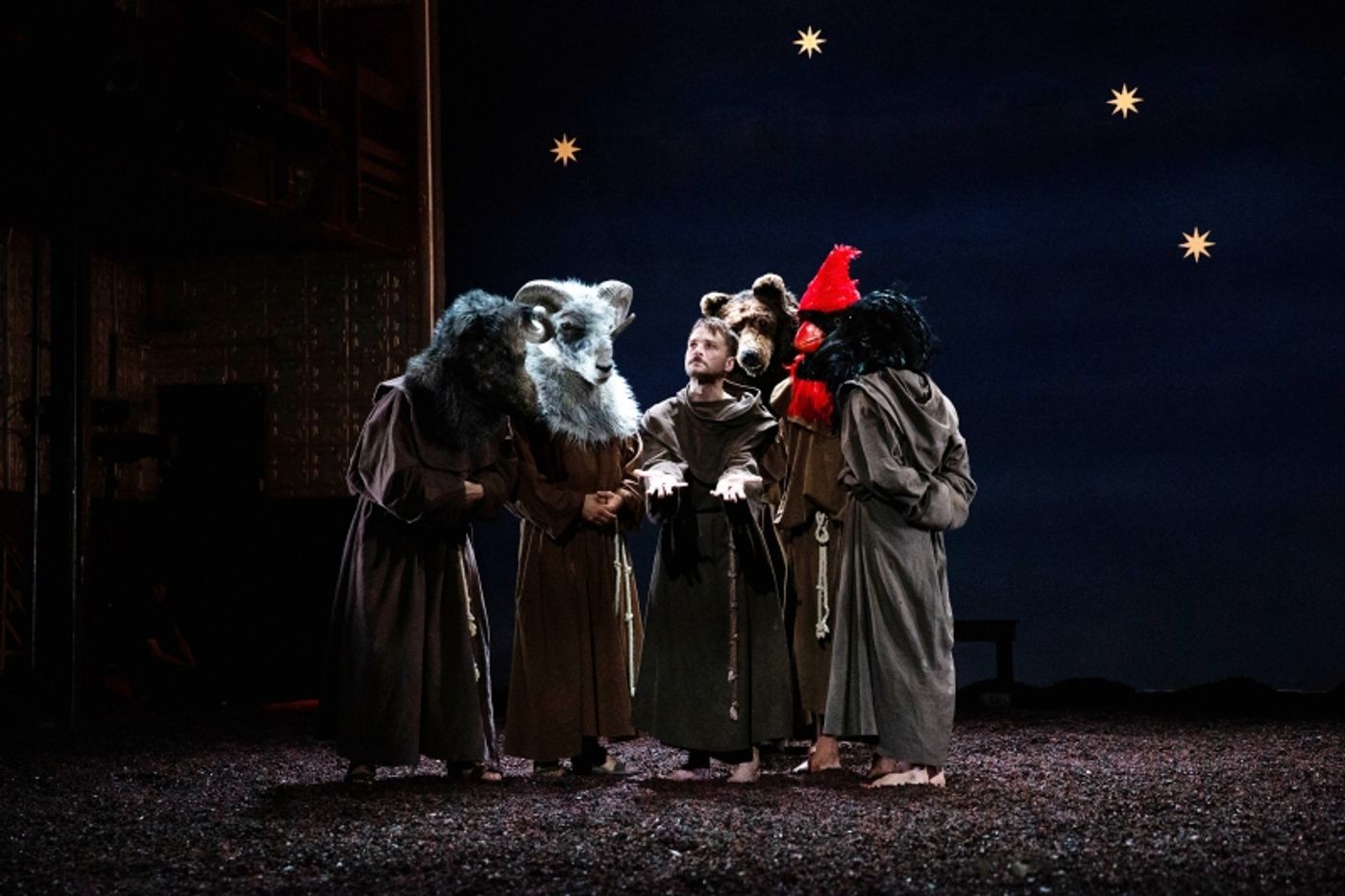Sunday Morning Michael Dale: 1909 Typist Turned Playwright Elizabeth Baker Writes of Chasing Your Dreams in Chains
Also, Martha Clarke's Dance/Theatre piece God's Fool, inspired by St. Francis of Assisi
Opening Number...
There are fully-grown, legally voting adults who weren't alive when I wrote my first article for BroadwayWorld in October of 2003, and throughout the nearly two full decades since then, I've always been very proud to contribute to a media outlet that so thoroughly covers the live theatre scene; not just in New York, but worldwide.
But I've never been prouder to be a part of BroadwayWorld than I was this past Friday morning, when very shortly after the news broke of the Supreme Court's overturning of the Constitutional right to obtain an abortion and turning that decision over to each individual state, the site prominently posted an article advising readers of ways to fight against this decision, which included the following paragraph:
BroadwayWorld unequivocally supports a pregnant individual's right to choose, and access to medical care including abortion and condemns today's Supreme Court decision. We urge Congress and The Senate to take action to protect the rights of those able to become pregnant across the United States.
BroadwayWorld is a theatre site with no expectation from readers to provide editorial content about non-theatre issues, so yes, it made me especially proud to see the decision was made to go beyond our usual bailiwick and take a stand on this vitally important issue.
I have friends who are political activists. They attend rallies and marches, make phone calls and knock on doors. I admire their efforts very much, but as for me, I believe my niche is to help amplify the voices of playwrights who are making important points about today's political and social issues.
In my 40+ years of playgoing, I've generally found that the fringier the theatre, the more likely the production is to voice bold opinions. In recent weeks, I've written about plays like Madhuri Shekar's Queen, examining the sometimes uneasy partnership of activism and statistics, Gab Reisman's Spindle Shuttle Needle, dealing with the vulnerability of civilian women in war zones, Mara Vélez Meléndez's Notes on Killing Seven Oversight, Management and Economic Stability Board Members, about the American government's treatment of Puerto Rico during its economic crisis, and Stephen Kaliski's The Refugees, debating the moral obligations nations may have when people in need approach their boarders.
In troubling times like these, it's the artists who have traditionally advocated for the targets of oppression. With this weekly column, I wish to advocate for the underpublicized, fringier productions, far from the illuminating spotlight of Broadway, where bold, committed voices fighting injustices are screaming to be heard.
What I found a little baffling at intermission of Mint Theater Company's splendid production of Elizabeth Baker's Chains...
...was why a woman playwright in 1909 would pen a story about two men ready to throw away the security of their salaried jobs and take a risk to find something more satisfying.
My guest, who had done a bit of reading on the playwright beforehand, pointed out that this was Baker's first play, and up until then she was working in London as an office typist for $5.00 a week. We surmised that, being a woman, the men she worked for may not have paid her much attention, and perhaps the play was suggested by confessions of dissatisfaction she had overheard.

(Photo: Todd Cerveris)
Up until that point, the play was mainly about how a young office clerk named Freddie (politely charming Peterson Townsend), who is renting a suburban London room from co-worker Charley and his wife Lily, suddenly announces that in three days he'll be traveling to Australia, despite having no immediate prospects, because he feels he wants more out of life than a modest steady income and three weeks of vacation a year. His announcement fascinates Charley, who married young and has been fulfilling his expected duties for unappreciative executives, and sparks a hidden desire to do the same.
It's not until the second act that we find that Lily's shopgirl sister Maggie (spiritedly perky Olivia Gilliatt), who express admiration for Freddie's decision earlier, is considering breaking it off with her nice, but dull finance - who she only agreed to marry to escape the drudgery of her job - and go off to find her own adventure.
As is always the case with Mint productions, director Jenn Thompson's heart-tugging mounting presents an old play without any contemporary commentary or interpretation. At the center is the excellent work of both Jeremy Beck, whose Charley shows the signs of struggling with his want for more, and Laakan McHardy, whose kind, demure exterior as Lily is shattered in a scene where Charley tries to explain that he doesn't want to end their marriage, but he still has a yearning to seek a new life.
I won't reveal what happens next, but there was a lot of lively post-show discussion about what was really happening at the play's conclusion and what messages the playwright was trying to convey about men, women, security and opportunity.
Up until Monday night, the only times I'd ever think about St. Francis of Assisi...
...would be once a year when newspapers and websites would show photos of pigs and camels and puppies climbing the steps of The Cathedral of St. John The Devine for the annual St. Francis Day Blessing of The Animals.
So it probably would have been a good idea for me to read up on the fellow a bit before taking in Martha Clarke's latest dance/theatre piece, God's Fool at La MaMa (tickets $30 advance; $35 day of show; Students/Seniors: $25 advance; $30 day of show).
Not that I didn't enjoy the 75-minute impressionistic piece, but poet Fanny Howe's sparce narrative presents more of a riff on the life of the saint born into privilege who rejects the good life and chooses to mingle with the poor and disenfranchised, rather than a full narrative.

(Photo: Amanda Lynn Kim)
I found the experience more meditative than dramatic. Designer Robert Israel provides a grassy landscape to enhance freedom of movement, and while his costume design consists primarily of monk's robes, they are accented on occasion by beautiful animal masks.
But what stood out for me was how the eight member company (including Patrick Andrews as Francis, ballet star George de la Peña as his father and John Kelly as the devil) gorgeously sings music direction/arranger Arthur Solari's a capella score that spans the piece, incorporating music from Gustav Mahler, Hildegard Von Bingen, Latin compositions and American spirituals.
I'm not a spiritual person, but I found the singing quite heavenly.
Curtain Line...
"It's my body, and my body's nobody's business but my own." - Ira Gasman lyric from The Life
Videos


